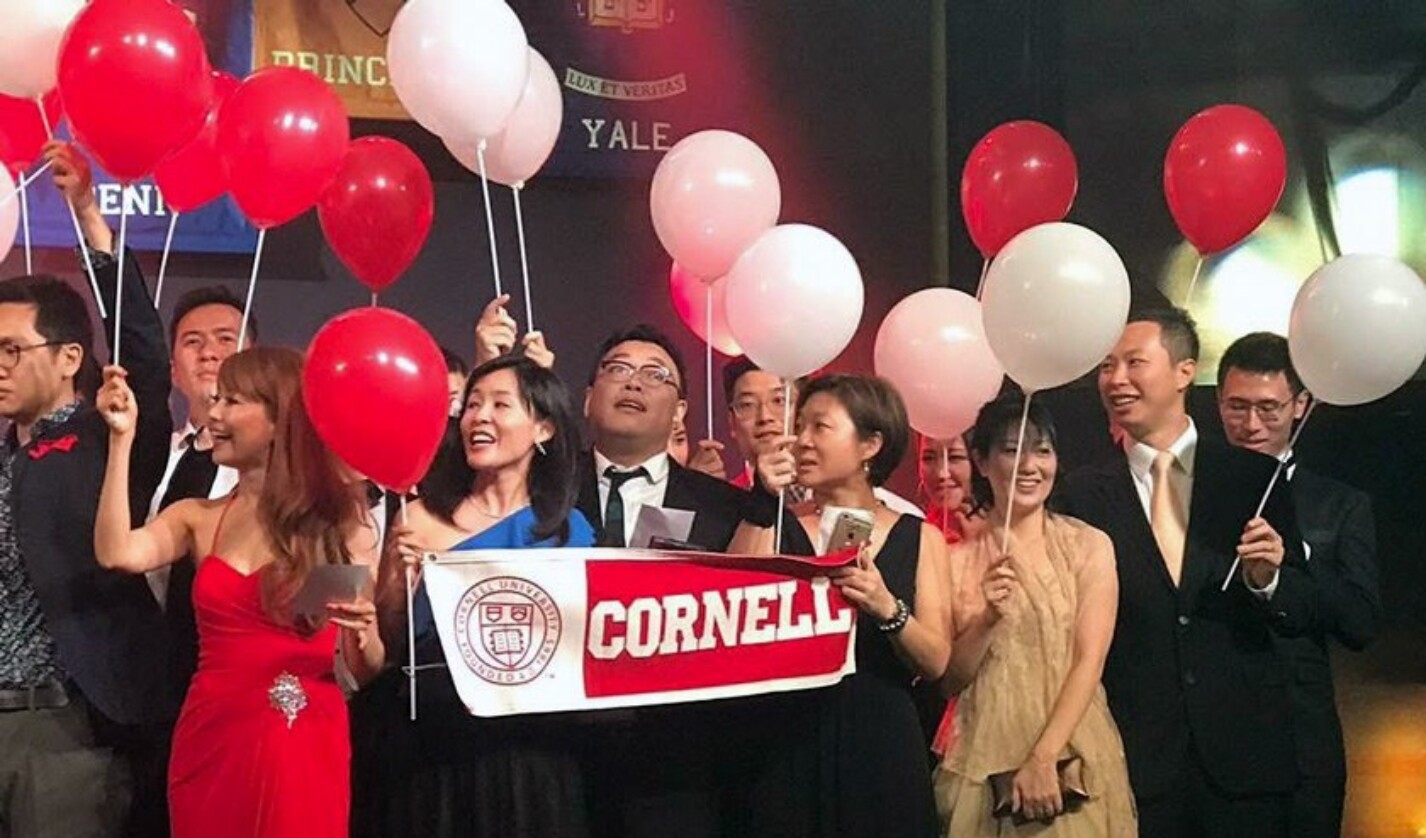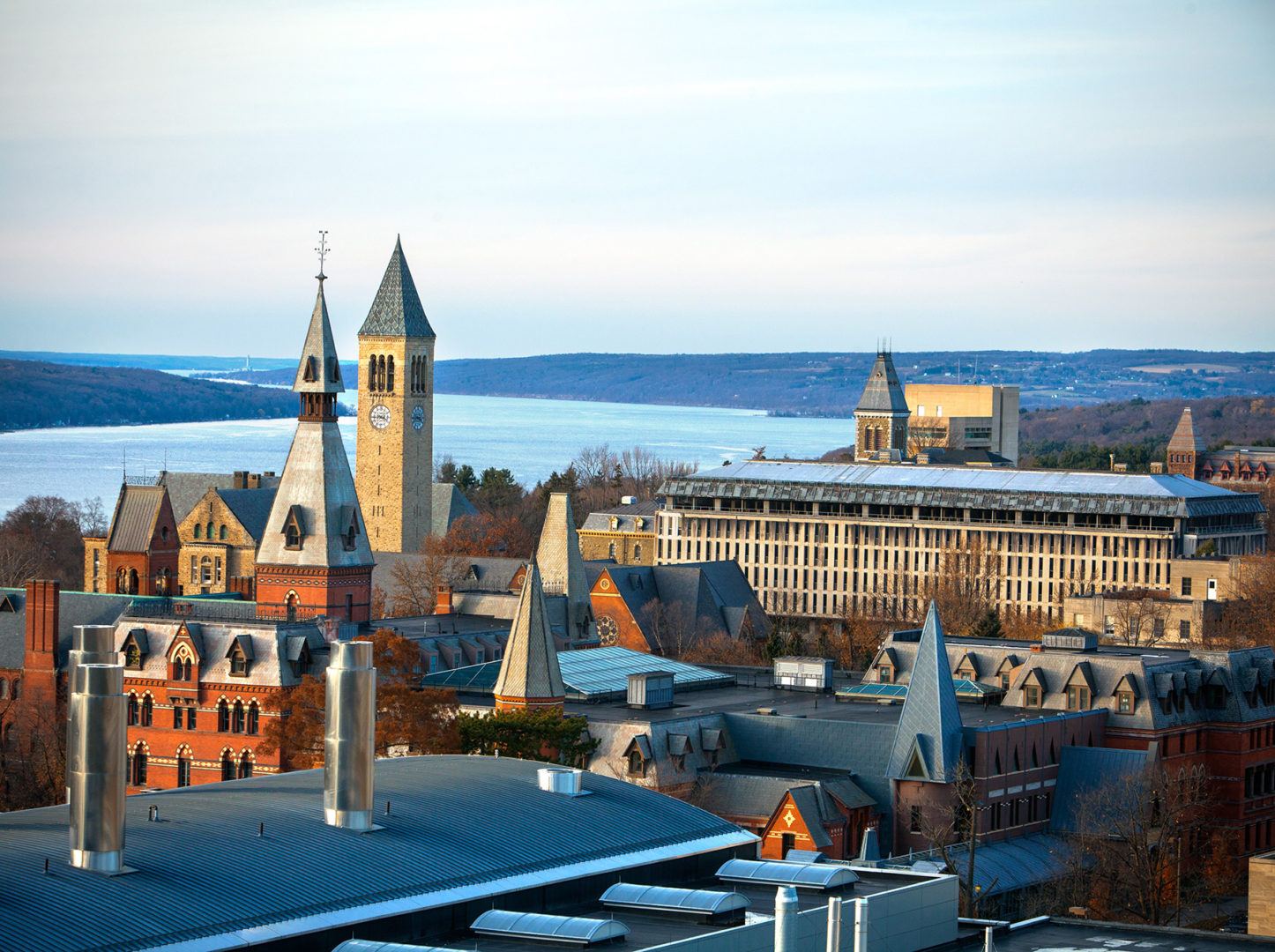Mursal Rahim MPA ’25 visited Cornell for the first time in October 2022. She met fellow Afghan students who left their country when the Taliban took control in fall 2021, and who were now attending the university. After her visit, she decided to apply for the MPA program in the Brooks School of Public Policy. She was attracted by the program’s concentration in human rights and social justice.
To Mursal’s surprise and delight, she was admitted and arrived on campus in August 2023, just shy of two years after she fled her home in Afghanistan and arrived in the US.
Mursal’s Cornell education is supported by the Brooks School. Cornell is making an investment in this inspiring young woman—a person who has spent her life running toward education and the power it gives her to improve the lives of others.
Now, I feel like my dream should not have boundaries—like I can dream as big as I can. And, I will do my best to achieve this big dream.
Read Mursal’s story of growing up as a girl who loved to learn, in a country where women are banned from many professions. Of her pursuit for justice by training as a lawyer, with the goal of helping her fellow Afghan women. Of her escape from Kabul after the Taliban takeover in August 2021, and her arrival in the US—not knowing English. Of her drive to continue her education here in the US and achieve her dream of helping others receive fair treatment under the law.
Run to school
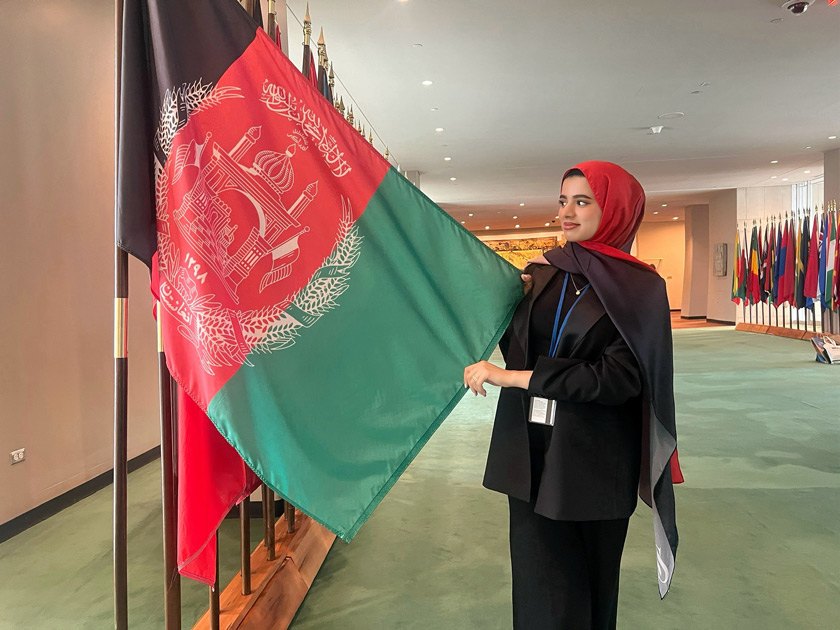
On September 11, 2001, al-Qaeda hijacked and crashed four US jets into the Twin Towers of the World Trade Center in NYC, the Pentagon in Washington, DC, and a field in rural Pennsylvania. One month later, the US-led campaign against al-Qaeda in Afghanistan toppled the Taliban regime that had harbored the terrorist group. It was October 2001, and Mursal was five years old.
Mursal, her parents, and six siblings lived in the town of Kunduz in northern Afghanistan. Thus far, her daily life had been shaped largely by the Taliban, a fundamentalist Islamic group that controlled most of her country from 1996 until October 2001. Under the Taliban’s rule, women were banned from attending school and pursuing many avenues of employment.
Mursal’s mother was a teacher who met privately with women in their homes throughout this period, to tutor them and help them advance their educational goals. Mursal says that the ban on education created a pent-up demand amongst Afghan families—a demand that was unleashed the minute the Taliban was routed from power. Public schools were soon reopened to girls and Mursal was determined to attend.
My school was just the walls, nothing else. There were no chairs, no blackboards, no anything.
At just 5 years old, she had to petition to enter the school near her house. Many older girls who had not been permitted to study for the prior five years were also applying, and Mursal begged her father to help convince the school principal to let her in. Mursal’s father, a professor, was keen on education and sympathetic to her pleas. He spoke on her behalf and Mursal was admitted to school as the youngest member of her class of 50 students.
“The Taliban was targeting schools and burning them,” she says. “My school was just the walls, nothing else. There were no chairs, no blackboards, no anything. So, we sat on the floor, on a piece of fabric or wood. For most of the students, we didn’t mind sitting on the floor.”
Mursal still clearly recalls her excitement about going to school. One day she woke up early and, not waiting for her father, she ran there by herself. “The school was like a 15- or 20-minute walk from our house. But it was on a straight street. I went down the street, and the school was right there in front of me. Everyone was searching for me, and they found me at school.”
Be anything you want
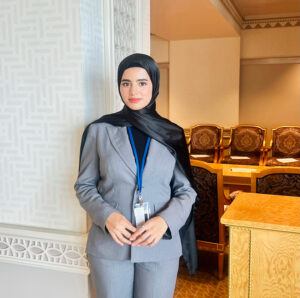
In Afghanistan, Mursal explains, girls and boys attended separate schools. In her school, cohorts of about 50 students had one teacher all day. Each cohort moved through the grades together, but as some girls married (often as young teens), many dropped out. The remaining students would be combined with another class in the next year and continue. Math and science were not introduced until about 5th grade, and the primary focus was on preparing students for professions considered acceptable for women (for example, teachers, nurses, office workers).
Mursal is grateful that her parents were educators (her father was a university professor and her mother was a teacher) who supported her own educational aspirations. She recognized that this was not the case for many of her peers. After they married, they lived with their husband’s family.
“They (the husband’s family) can tell you what to do or not, when to go to school, or when to leave school,” Mursal explains. “If you do not obey your husband, they will find a way to silence you or send you back to your family house. Divorce is a really bad thing for Afghans, a really bad thing,” she emphasizes.
If I become an attorney, I will help you with your divorce case. So, you can be free and do whatever you want.
Physical and mental abuse was commonplace in the lives of Afghan women, including some of her classmates. Mursal decided at a young age that she wanted to help these women and advocate on their behalf as a lawyer.
“As a girl, when you are growing up in Afghanistan, it’s so hard. Everything bothers you. The way that women are treated and the opportunities that boys have versus the opportunities that girls have. You have limited options for what you want to become. But the boys—they can be anything that they want.”
She knew that some of her married classmates were in toxic relationships. “I would always say to them, ‘When you have issues, if I become an attorney, I will help you with your divorce case. So, you can be free and do whatever you want.’”
Becoming a lawyer is big dream for a young woman in Afghanistan. There were few women attorneys and even fewer who advocated on behalf of women and their rights. Mursal worked single-mindedly to achieve her goal. She took the mandatory entrance exam twice but failed to secure a spot in the public law school in her city. She recalls crying at home for a week.
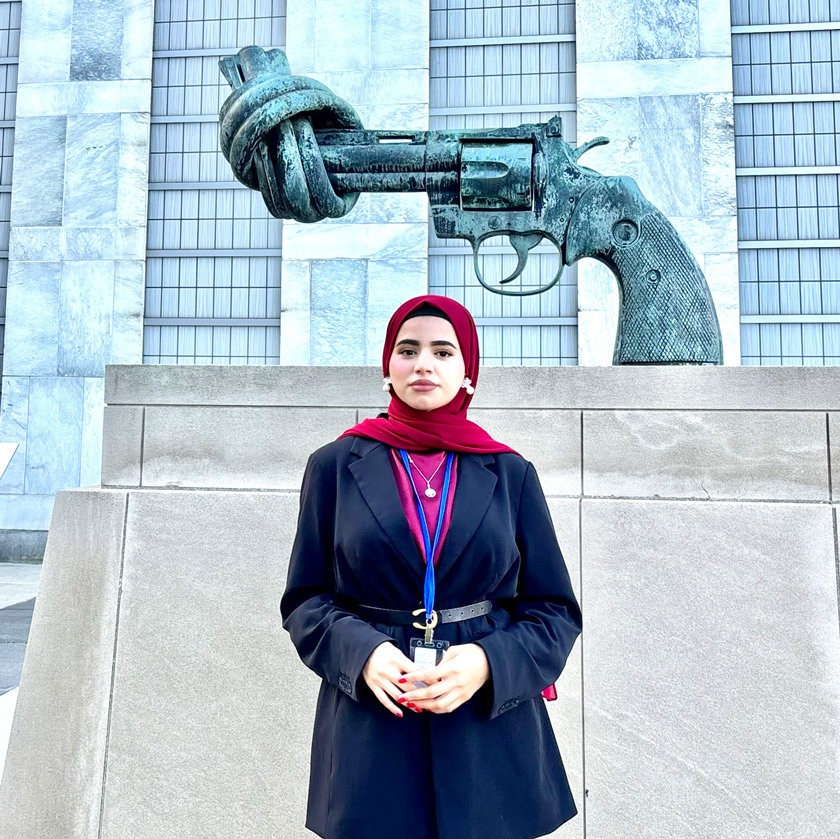
Seeing her daughter so discouraged, Mursal’s mother committed to pay for private law school. The annual tuition of $400 was equivalent to four months’ worth of her mother’s salary as a teacher. It was a huge, life-changing investment to support her daughter’s educational dreams. With her mother’s help, Mursal attended private law school, graduating in 2019.
She aspired to pursue a master’s degree in law—something that would help her to achieve her goal of working to advance the rights of Afghan women. Mursal says that having an advanced degree mattered, because, “It’s not so easy to find a job in that area in Afghanistan.”
“My idea was to work with the women who are in jail,” she recalls. “It was a completely different situation for them, and something that no one was talking about. When you’re pregnant, your child will grow up with you in the jail. This was really hurting me.”
To improve her chances for admission to graduate school, she was determined to learn English and then spend a year studying abroad in Turkey. She moved in with her older brother in the capital city of Kabul, where he worked as a reporter for the New York Times and other international news organizations.
Keep your dream alive
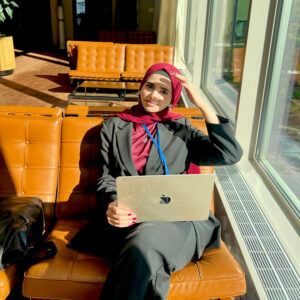
In 2020, the pandemic interrupted her study abroad plans, and in May 2021, just after the quarantine lifted, the Taliban began a major insurgent offensive. On July 1, 2021, Kunduz fell to the Taliban. In the capital of Kabul, Mursal and other residents continued life—thinking that their country would not fall again under Taliban rule.
“People thought, ‘It’s just for a few weeks, or for a few months. It will not happen: the Taliban will not take over all of Afghanistan again,’” she says.
A few months later, on August 15, 2021, Kabul fell to the Taliban. Mursal’s brother was in grave danger from the Taliban due to his investigative journalism and associations with US and Western media.
Just days prior to the US withdrawal from Kabul, they learned that the family would be flown to Qatar and then moved to Mexico, where they would wait for permission to enter the US. After a harrowing first attempt to flee via Kabul Airport (in which Mursal’s youngest brother survived being beaten by the Taliban and temporarily separated from the family), the family boarded a jet to Qatar, along with about 120 other refugees who were sponsored by the New York Times (NYT). From there, the group traveled to Mexico City, till the Times secured permission to move them to Houston, Texas through the humanitarian parole program.
Read the story of the group’s escape in the New York Times.

The family was housed in an apartment in Houston while waiting for their immigration paperwork, medical clearances, and work authorizations to be processed. Mursal felt like she had lost everything: her home, her friends, her country, and her dreams of working as an attorney.
“We were in shock, all of us,” she says. “We were not in a good state of mind, because we had gone through so much. My sister and me, and my mom, we were always sleeping. We didn’t want to get up. We were depressed.”
She recalls talking with a volunteer from a Houston-based immigration assistance organization, Susan. Susan visited the family at their apartment, where they lived for more than a year.
“Susan was such a great human being. When we talked about our dreams, we would say, ‘Well, we had these dreams, but now they’re impossible,’” Mursal recalls. “And Susan told us, ‘No, one day you will be a millionaire. One day you will go so far!’”
Mursal and her sister ended up applying for jobs with this organization. They were both hired as classroom assistants, helping support immigrant children at an English language learning center.
Go back to school
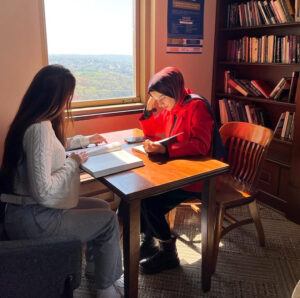
Mursal soon met another woman who would inspire her and change the course of her life. This woman was her brother’s boss at the New York Times, and now president of NBC News, Rebecca Blumenstein. Rebecca was one of many people who worked behind the scenes to help negotiate safe passage for the NYT-affiliated group of Afghans.
She took a special interest in Mursal and her sister, both of whom were well-educated Afghan women. When Rebecca asked Mursal what her dream was for her life in the US, the answer was easy: she wanted to return to school and pursue her graduate studies.
“Rebecca told us, ‘You have to do this, and we have to help you.’” Mursal recalls. “After that, she started searching for universities and reaching out to people to try to help us achieve our dream and go back to school.”
At the time, Mursal’s own English language skills were rudimentary. She was 25 years old and just starting to speak, read, and write in English. She knew that she would not be able to enter an LLM (Master of Laws) program directly. With Rebecca’s help, she and her sister applied for a scholarship to study English at Chatham University in Pittsburgh, Pennsylvania.
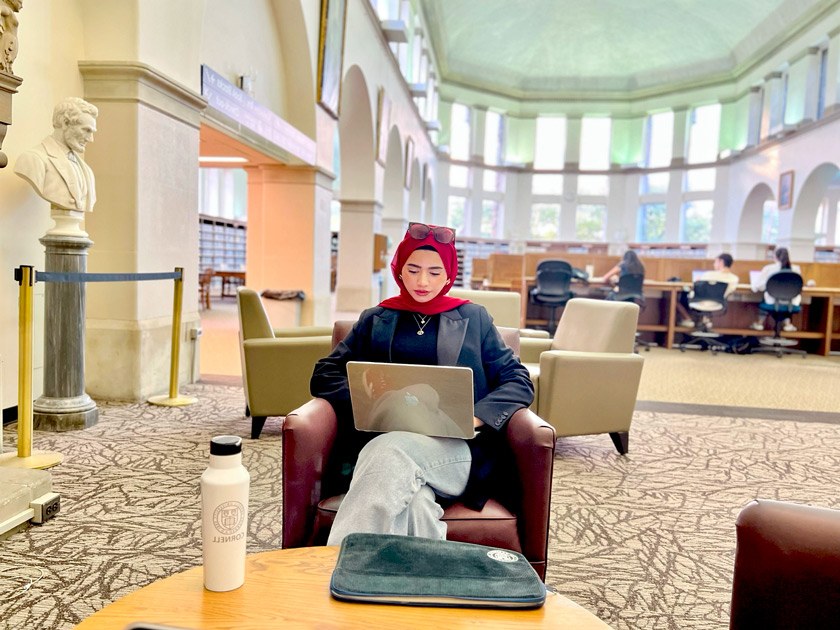
As Mursal’s English fluency grew, a college counselor she had met through the NYT suggested that she consider applying to another university in New York, called Cornell. This friend’s name was Victoria Dryfoos.
“Victoria told us there is another school that received people from Afghanistan, and it’s such a good school. At that time, I had no idea where Cornell was, and what it means to go to a school like Cornell,” Mursal shares.
When Mursal arrived on campus and looked around at her fellow MPA students, she realized what an enormous challenge she faced to keep up. She says that her first semester at Cornell was the most difficult.
“I cannot find the words to describe how hard the first semester was. I had microeconomics, I had statistics. I was lost. When the professor was talking, I had no idea what they were saying,” she says.
Mursal recorded all her lectures, translated them into Persian, and then back into English. She says that a one-page reading assignment took her 30 minutes. To complete her assignments, she stayed up all night. She remembers finishing just before dawn and walking out to Beebe Lake to watch the sun rise. Then she would go to class, turn in her assignment, and go home to sleep.
She reached out to her professors and her classmates for help, and they were happy to do so. Mursal knew that if she could survive her first semester, she could make it at Cornell. She ended the semester with all As and one B+. She aced her first year and is now enjoying elective classes in year two, focusing on human rights—her passion.
Her takeaway is, “If you work hard, and if you really want something, you can get it.”
Work for real people
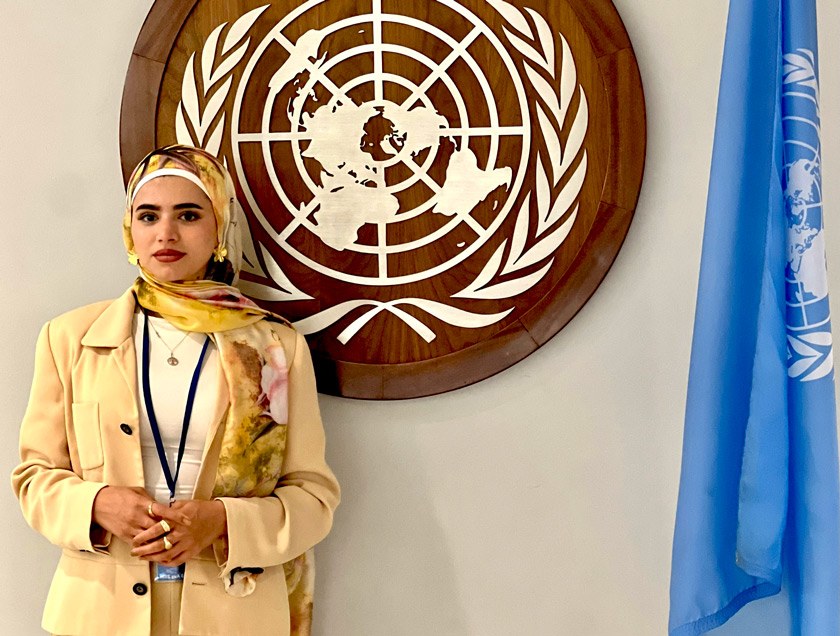
When Mursal was a young girl growing up in Afghanistan, she recalls the positive impact that UNICEF had in her community. Her pencils and school bag bore the UNICEF insignia, and the organization helped to repair and build the schools that she and her fellow Afghans attended. From a young age, Mursal dreamed of working for the United Nations to advance the rights of children in communities like hers around the globe.
“I know they are working for the real people in the real world. I saw for myself how effective they are,” she reflects. “They are building the schools, clinics, food infrastructure, and everything.”
In fall 2023, during her first semester at Cornell, Mursal set a goal for herself to get a summer internship at the UN headquarters in New York City. She made a spreadsheet to track the 30-odd applications she submitted, and she treated the application process like an extra class.
“I decided I would work at the UN and nowhere else,” she says. “I had no plan B. This was my plan, and I had to make it work.”
In February, she interviewed for an internship with the Department of Political and Peacebuilding Affairs. They offered her the position—but, unfortunately, it started immediately, and Mursal had to pass it up to finish her semester at Cornell. About a month later she had three more UN interviews. She accepted a summer internship with the United Nations Dispute Tribunal, a tribunal within the UN that oversees internal complaints—for example, unfair workplace practices or allegations of corruption within the UN.
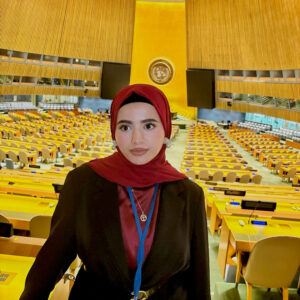
Mursal loved this work. “How they ask for justice and for their rights was so surprising to me,” she admits. “And how carefully they conduct all the hearings, and how dedicated they are to justice and making sure people are treated fairly. I was so amazed, because in Afghanistan they don’t do this even for criminal things.”
As she acclimatizes to her new life in the US and to the academic and personal freedom she has at Cornell and beyond, Mursal says her dream is now “huge.”
“When you come to the US, your eyes open. You see more opportunities,” she explains. “Now, I feel like my dream should not have boundaries—like I can dream as big as I can. And, I will do my best to achieve this big dream.”
Mursal’s extra class this semester (fall 2024) is to apply for a Masters of Law program. The sky is the limit for Mursal, and she plans to submit her application to some of the nation’s top law schools, including Cornell. She also hopes to apply for and secure a permanent job at the UN.
For someone who arrived in the country just three years ago, Mursal has lived up to Susan’s prediction that she would “go so far!”
Gifts from generous members of the Big Red community make it possible for Mursal, and students of all means, to pursue the issues that inspire them and make a difference in our world.

